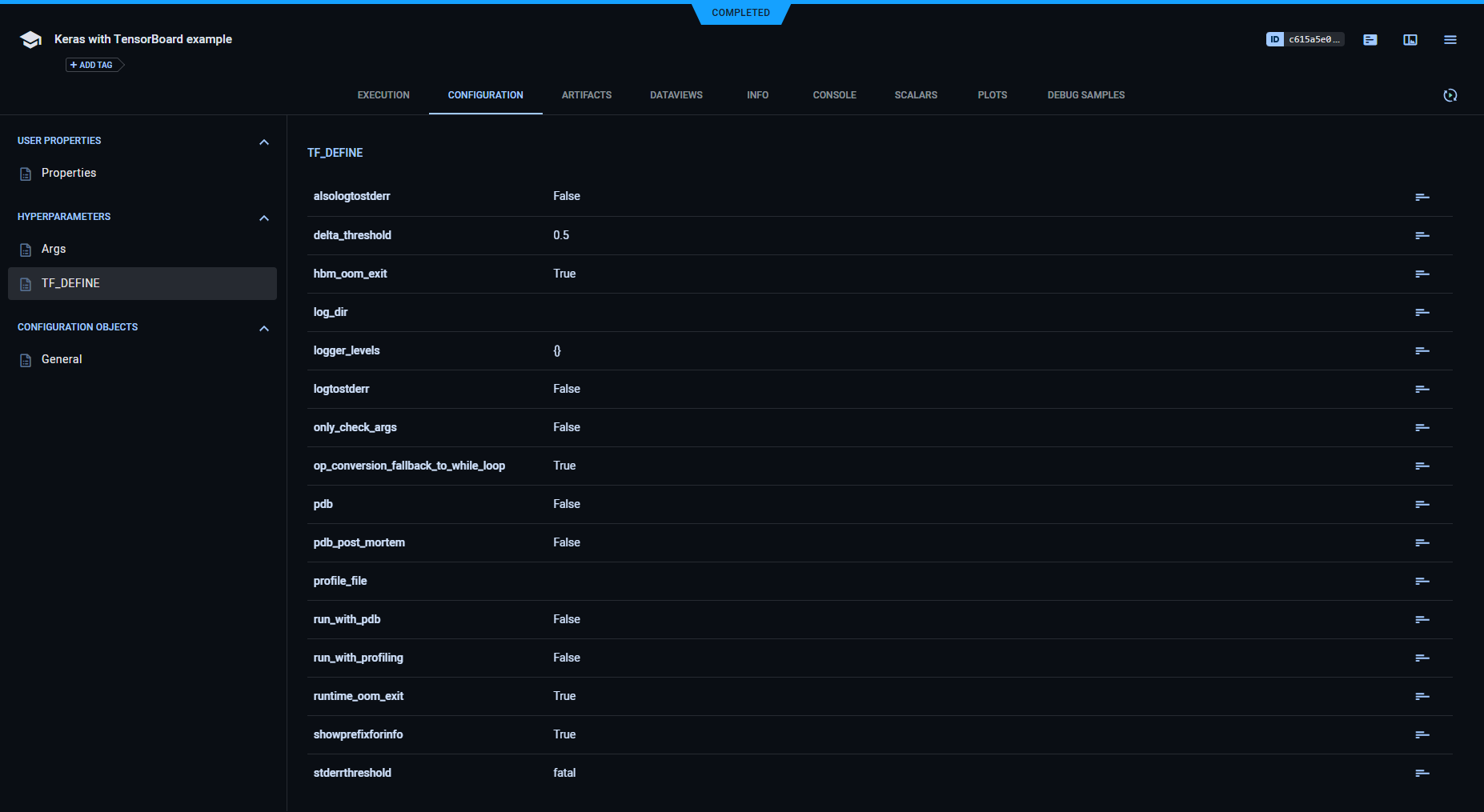---
title: Keras with TensorBoard
---
The example below demonstrates the integration of ClearML into code which uses Keras and TensorBoard.
View it in [script](https://github.com/clearml/clearml/blob/master/examples/frameworks/keras/keras_tensorboard.py)
or in [Jupyter Notebook](https://github.com/clearml/clearml/blob/master/examples/frameworks/keras/jupyter_keras_TB_example.ipynb).
:::note
The example in [Jupyter Notebook](https://github.com/clearml/clearml/blob/master/examples/frameworks/keras/jupyter_keras_TB_example.ipynb)
includes a clickable icon to open the notebook in Google Colab.
:::
The example script does the following:
1. Trains a simple deep neural network on the Keras built-in [MNIST](https://keras.io/api/datasets/mnist/#load_data-function)
dataset.
1. Builds a sequential model using a categorical cross entropy loss objective function.
1. Specifies accuracy as the metric, and uses two callbacks: a TensorBoard callback and a model checkpoint callback.
1. During script execution, creates a task named `Keras with TensorBoard example` in the
`examples` project (in script) or the `Colab notebooks` project (in Jupyter Notebook).
## Scalars
The loss and accuracy metric scalar plots appear in **SCALARS**, along with the resource utilization plots,
which are titled **:monitor: machine**.


## Histograms
Histograms for layer density appear in **PLOTS**.


## Hyperparameters
ClearML automatically logs command line options generated with `argparse` and TensorFlow Definitions.
Command line options appear in **CONFIGURATION** **>** **HYPERPARAMETERS** **>** **Args**.


TensorFlow Definitions appear in **TF_DEFINE**.


## Console
Text printed to the console for training progress, as well as all other console output, appear in **CONSOLE**.


## Configuration Objects
A configuration dictionary is connected to the Task by calling [`Task.connect()`](../../../references/sdk/task.md#connect).
```python
task.connect_configuration(
name="MyConfig",
configuration={'test': 1337, 'nested': {'key': 'value', 'number': 1}}
)
```
It appears in **CONFIGURATION** **>** **CONFIGURATION OBJECTS** **>** **MyConfig**.

